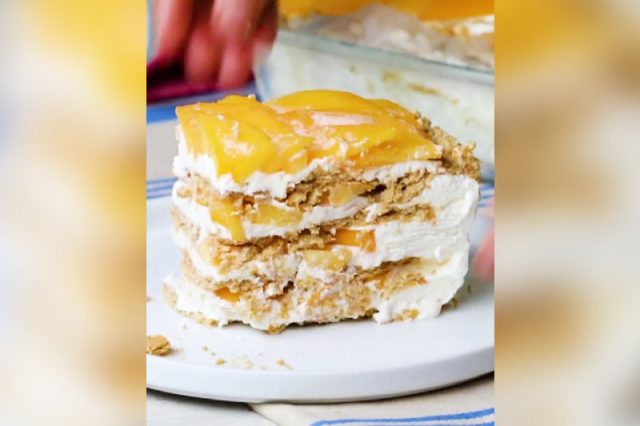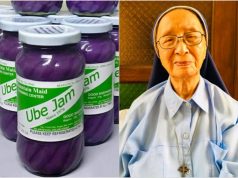
“Baka dapat bagoong?”
A video of a Filipino recipe featured on a food network’s social media page earned the attention of Pinoys for using a not-so-ripe mango for the dessert item.
Tasty app on Thursday shared a clip of the mango float recipe or the mango graham cake with the caption: “This cold refreshing Filipino dessert is a fan favorite!”
It also included a website link to the recipe, which gives more detailed instructions on how to make it.
This cold refreshing Filipino dessert is a fan favorite!
Shop the recipe! https://t.co/z0x8oy4bhA pic.twitter.com/59oXOfklef
— Tasty (@tasty) July 27, 2022
It has so far earned 14,200 views on the microblogging platform.
However, some Filipinos’ reactions to it were less than stellar after seeing the state of the mango used in the preparation.
“Baka dapat bagoong imbes na graham crackers kasi mukhang hilaw ‘yung mangga, bhie,” a Twitter user said.
“‘Di pa hinog, teh,” another online user wrote.
“Kulang po ng bagoong,” quipped a different Pinoy.
“Naglaway ako nung binabalatan ‘yung mangga. Ang asim pa niyan, beh!” exclaimed another Twitter user.
“Baka gusto niyo muna lasingin o gawing minatamis ‘yang mangga? O haluan niyo na lang ng bagoong ang cream?” wrote a different Filipino.
On Tasty’s website, it said that the mangoes to be used are “ripe, but not soft.”
The mango float recipe originated in the Philippines, which considers it its national fruit. It is also one of the country’s major fruit crops.
It is traditionally made with fully ripe mangoes, specifically carabao mango, which was declared the sweetest mango variant in the world by the World Guinness Records in 1995.
The unripe ones, which are green in color, are usually eaten with
“bagoong,” a Philippine condiment made with either fermented fish or prawns with salt.
Meanwhile, the mango float is a popular Filipino icebox cake dessert made with graham crackers or ladyfingers, whipped cream, condensed milk and ripe carabao mangoes.




